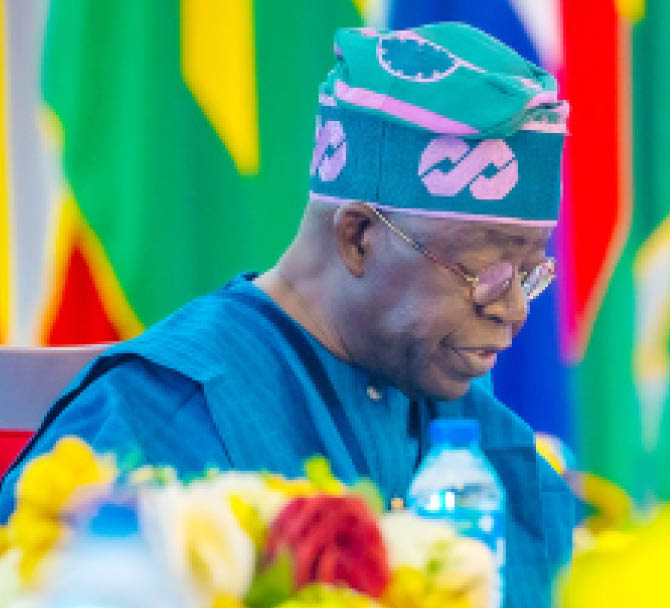President Tinubu has faced a major backlash over the sectionalism of his appointments.
NewsOnline Nigeria reports that the Northern Elders Forum (NEF) has blasted President Bola Tinubu over what it describes as the dominance of the South-West in recent appointments of heads of key security agencies, alleging that this reflects a promotion of sectionalism in the country.
This Nigeria news platform understands that the backlash comes in the wake of the appointment of Adeola Ajayi as the new Director-General of the Department of State Services (DSS) and the swearing-in of Kudirat Kekere-Ekun as the Chief Justice of Nigeria.
ALSO: Akpabio, Abbas Dragged To Court Over Unlawful Practice In NASS
The NEF’s spokesperson, Abdul-Azeez Suleiman, expressed concern that these appointments continue a trend of favouring individuals from the South-West region, which includes previous appointments such as the Chief of Army Staff, Taoreed Lagbaja, the Comptroller-General of Customs, Bashir Adeniyi, and the Inspector-General of Police, Kayode Egbetokun, all of whom are from the South-West.
The forum, which had earlier expressed regret for supporting Tinubu during the 2023 General Elections, stated that the President’s current actions threaten national unity by marginalizing other regions of the country.
NEF has called for more inclusivity in government appointments, warning that continued sectional favouritism could undermine the foundation of solidarity essential for maintaining a cohesive and diverse society.
This sentiment has been echoed widely on social media, where criticisms have been levelled against Tinubu for allegedly favouring his kinsmen in various high-profile appointments since taking office.
The NEF has hinted that it will prioritize a candidate who is “more inclusive, less controversial, and more aligned with the interests of all regions of the country” in the 2027 polls.
He said, “The foundation of Nigeria’s political framework rests on the idea of inclusivity and mutual respect among its multi-ethnic populace. With over 250 ethnic groups, the essence of nation-building in Nigeria hinges on ensuring that every region feels represented and valued within the national discourse. The continuous appointment of Southwesterners to key government positions has led to frustrations among other regions, particularly the North, South-East, and South-South.
“This perceived imbalance is not merely a matter of political representation; it strikes at the core of Nigeria’s social fabric. When one section of the country feels marginalised or systematically ignored, it breeds discontent and can exacerbate regional tensions, ultimately threatening the country’s stability.”
Suleiman called for a more equitable approach to appointments, stressing the importance of reflecting Nigeria’s diverse population in its governance structures.
He stated that a government that appeared to neglect the principles of inclusivity risked breeding discontent and regionalism, which could further fragment the country’s social fabric.
The spokesman said, “It’s disappointing and calls for a more balanced approach that accommodates all regions equally. I emphasise the need for appointing qualified candidates based on competence rather than regional affiliation. This sentiment aligns with the broader calls from various sectors of society for transparency and accountability in government appointments, fostering an environment where meritocracy prevails.”














